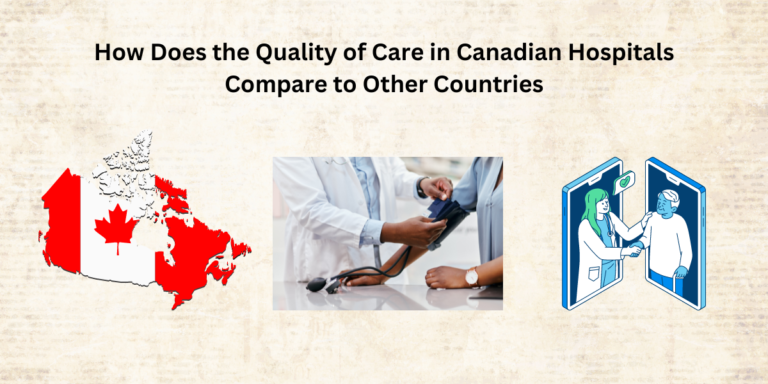Does Canada’s Healthcare System Cover Mental Health Services?
Canada’s Medicare provides universal healthcare to all residents, but when it comes to mental health, the situation is more nuanced. While psychiatric care in hospitals and consultations with doctors are generally covered, outpatient therapy and counseling often require private insurance or out-of-pocket payments. In this post, we will explore what mental health services are covered, where the gaps lie, and how Canadians can access the care they need.
By the end of this guide, you’ll have a clear understanding of what Canada’s healthcare system offers for mental health, along with insights into the benefits and challenges of accessing mental health services across the country.
What Mental Health Services Are Covered Under Canada’s Healthcare System?
Canada’s healthcare system, commonly referred to as Medicare, is publicly funded and provides coverage for essential medical services. However, mental health services are not fully integrated into this system. Psychiatric care provided in hospitals is generally covered, as well as consultations with primary care physicians for mental health issues. But when it comes to outpatient mental health services, such as therapy or counseling, the picture becomes more complicated.
1. Psychiatric Care:
Psychiatric treatment provided in hospitals, including inpatient stays and emergency mental health services, are fully covered under Medicare.
2. Primary Care:
If you visit a general practitioner (GP) to discuss mental health concerns, the visit will be covered. However, the treatment options your GP can offer are often limited, which is where the gap in care becomes more visible.
What Services Are Not Covered by Medicare?
1. Outpatient Therapy and Counseling:
Many mental health services, such as psychotherapy, counseling, or private mental health clinics, are not covered by the public healthcare system. Most Canadians need to rely on private insurance or pay out of pocket for these services. However, some provinces offer limited coverage for therapy under specific programs for children or low-income individuals.
2. Prescription Medication:
While hospital-provided medication is covered, outpatient prescription drugs, including those used for mental health conditions like antidepressants, are not typically included in the universal healthcare package.
Advantages and Disadvantages of Canada’s Approach to Mental Health Coverage
Advantages:
- Universal Coverage for Inpatient Care: Psychiatric care, when provided in hospitals, is fully covered, which means critical care is accessible to all Canadians.
- No Out-of-Pocket GP Visits: Seeing your GP about mental health concerns comes at no additional cost, making initial consultations more accessible.
Disadvantages:
- Outpatient Services Gaps: Services like therapy and counseling often require private health insurance or out-of-pocket payments, limiting access for low-income individuals.
- Long Wait Times: There are often long wait times for publicly funded mental health services due to high demand and limited resources.
Problems and Concerns with Mental Health Coverage in Canada
1. Unequal Access Across Provinces:
Healthcare in Canada is managed at the provincial level, leading to variation in mental health coverage. Some provinces provide more support than others, making access unequal across the country.
2. Long Wait Times:
Public mental health services often have long wait times, especially for outpatient therapy, which can delay essential treatment.
3. Financial Barriers:
For those without private health insurance, the cost of therapy and medications can be prohibitively expensive, especially for long-term treatment.
Dos and Don’ts When Navigating Canada’s Mental Health Services
Dos:
- Do consult your GP first: If you have mental health concerns, start by visiting your family doctor, as this visit is covered under Medicare.
- Do check provincial programs: Some provinces offer additional support for specific groups, such as children or low-income residents, which may help with therapy costs.
Don’ts:
- Don’t assume all mental health services are covered: Services like private counseling and therapy sessions usually require private insurance or personal payment.
- Don’t neglect your options for support: Community organizations, workplace benefits, and provincial initiatives can fill some of the gaps.
FAQs About Mental Health Coverage in Canada
- Is mental health therapy covered by Medicare in Canada?
No, outpatient therapy such as counseling or psychotherapy is generally not covered by Medicare. You will need private insurance or pay out-of-pocket for these services. - Does Canada’s healthcare system cover psychiatric hospitalizations?
Yes, psychiatric care provided in hospitals, including emergency mental health services, is fully covered by the public healthcare system. - Are medications for mental health conditions covered?
Medications provided during hospital care are covered, but outpatient prescriptions, including those for mental health conditions, are typically not covered by Medicare. - Do all provinces have the same mental health coverage?
No, mental health coverage varies by province. Some provinces offer additional support programs, but services are not uniform across Canada. - Can low-income individuals access mental health services for free?
Some provinces offer free or subsidized mental health services for low-income individuals, but these programs are often limited and have long wait times.
My Advice
If you’re in need of mental health support, my advice is to first consult your GP, as this visit is covered. Be proactive in checking provincial programs that may provide assistance. If you have private insurance, make sure to check what mental health services are covered. Additionally, consider community organizations that offer free or low-cost mental health support.
Conclusion
Canada’s healthcare system provides good coverage for psychiatric care in hospitals, but significant gaps exist in outpatient mental health services, which are often not covered. While some provincial programs offer additional support, accessing consistent mental health care can be difficult without private insurance. If you are navigating the mental health system in Canada, it’s crucial to explore all available options, from public programs to private insurance, to ensure you get the care you need.







